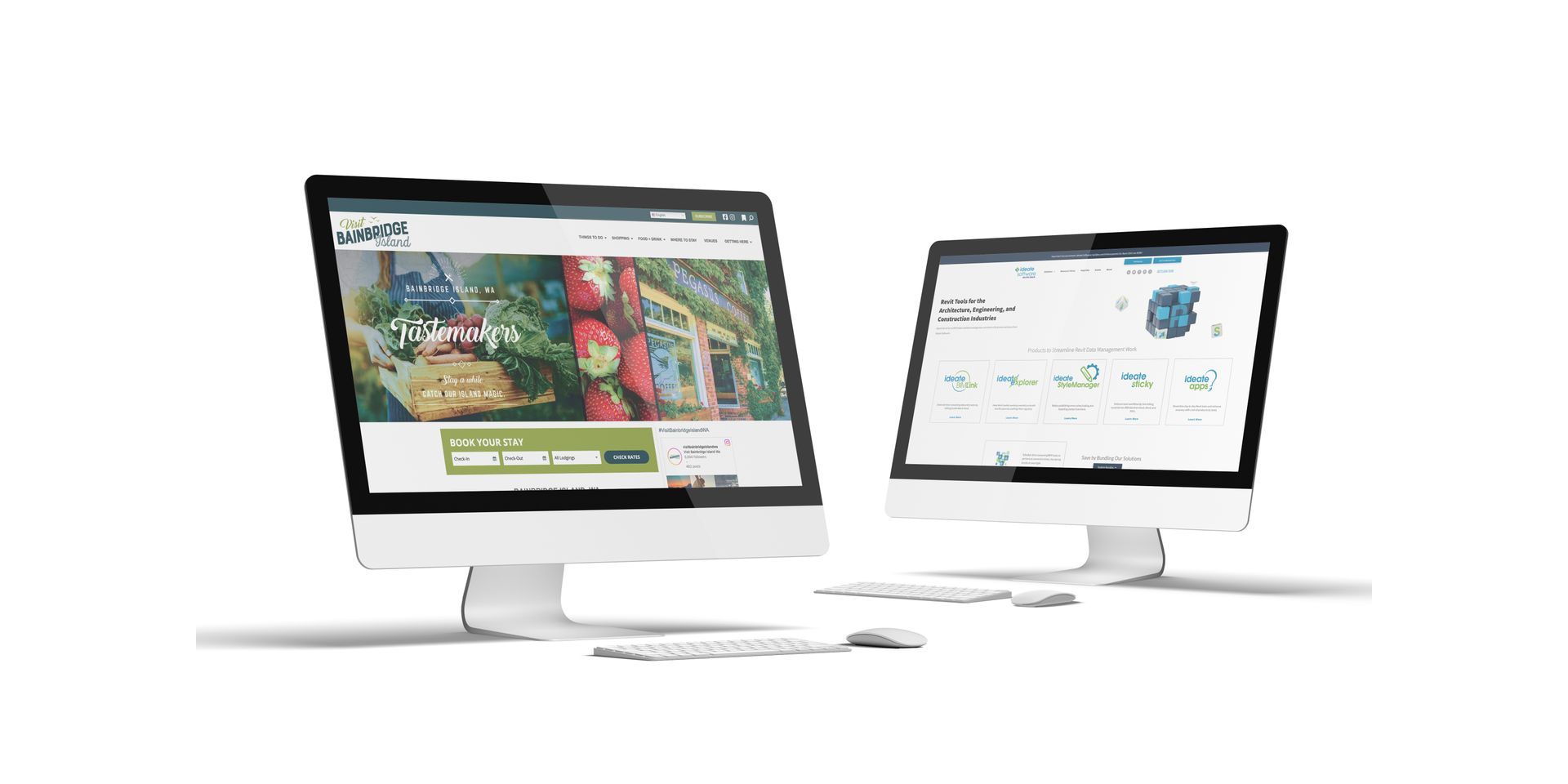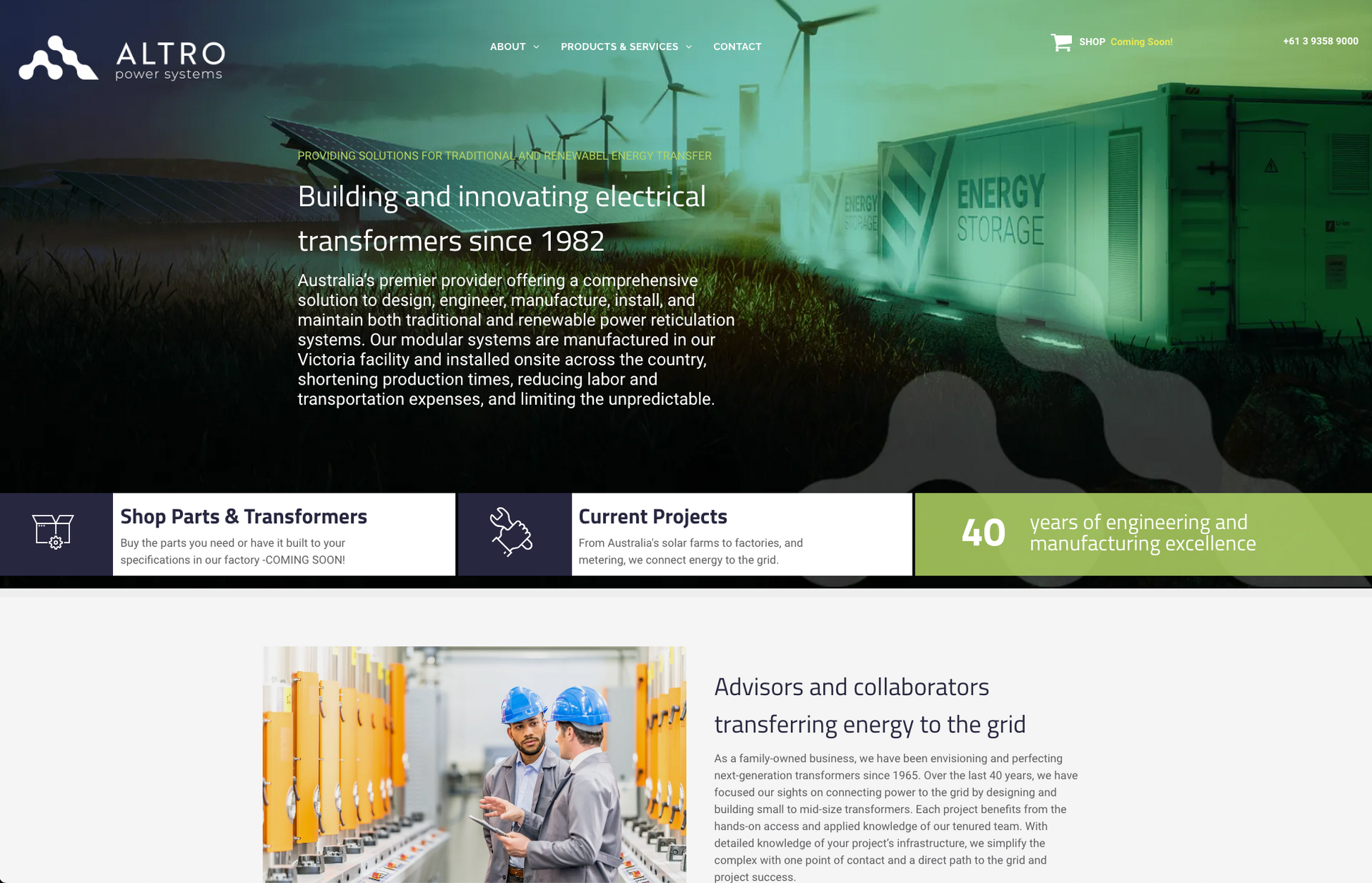How to choose the best website platform for your business
Choosing the right website building platform is a critical decision for any business, whether you're launching a new site or refreshing an existing one. As a web development agency, we know that the platform you select can impact everything from ease of use to long-term scalability.

Each platform has its strengths and weaknesses, and what’s best for you depends on your unique needs, resources, and business goals. Let’s take a closer look at the pros and cons of some of the most popular website-building platforms.
WordPress: The Powerhouse of Flexibility
Pros:
- Customization: WordPress is incredibly flexible. You can build anything from a simple blog to a complex e-commerce site with endless customization options, thanks to thousands of themes and plugins.
- SEO-Friendly: With its built-in SEO capabilities and compatibility with various SEO plugins, WordPress excels in helping your site rank higher on search engines.
- Community Support: As an open-source platform, there’s a massive community of developers, designers, and users offering support, plugins, and tutorials.
Cons:
- Steeper Learning Curve: It’s not a plug-and-play platform. You’ll need to understand some basic coding or hire a developer to get the most out of it.
- Maintenance: Regular updates for plugins, themes, and the WordPress core itself are necessary to ensure security and functionality, which can feel a bit hands-on for some.
- Security breeches: As one of the most used platforms it is also the most targed. Security is key for a site on the WordPress platform.
Best for: Businesses that need full customization, scalability, and are ready for some ongoing maintenance. WordPress is perfect for blogs, portfolios, and complex websites that require unique functionality.
DUDA: The Go-To for Agencies
Pros:
- Stability and Speed: Brand Premise's go to platform when our clients want to self-manage their sites and have a more limited budget for maintenance. DUDA excels in page load speed, which is crucial for both user experience and SEO. Backend access and built-in schema make it a SEO friendly without costly programming.
- SEO-friendly: With its built-in SEO capabilities, automated schema written and Google integration, DUDA excels in helping your site rank higher on search engines.
- E-Commerce Capabilities: DUDA has solid e-commerce features, particularly for small businesses looking to sell products online and quickly wbuild stores with integrated marketing and remarketing capabilities.
- Mobile-Friendly: DUDA has a strong focus on responsive design, ensuring your site looks great on any device with minimal effort.
Cons:
- Limited Integrations: While DUDA offers a decent set of built-in tools, its integration options are more limited compared to something like WordPress.
- Limited apps: While the list is growing. There are more limited number of apps for the platform.
- Best For: Agencies managing a portfolio of clients, or small to medium-sized businesses that prioritize performance and mobile responsiveness.
Best for: Agencies that want to scale a stable platform for mulitple sites with easy client access and no maintenance requirements. Businesses who are looking for the ease of editing but need security, SEO capabilities and performance.
Wix: Easy Drag-and-Drop but Limited for Scaling
Pros:
- User-Friendly: Wix is one of the easiest platforms to use with its drag-and-drop editor, making it ideal for those without any coding experience.
- All-in-One: Wix provides everything you need out of the box, from hosting to design templates, making it easy to get started.
- Visual Customization: With Wix, what you see is what you get. You can tweak designs visually without needing to dive into code.
Cons:
- Limited Flexibility: As your business grows, you might find Wix’s customization and scalability options a bit lacking compared to more robust platforms like WordPress.
- SEO Limitations: Although Wix has improved its SEO tools, it's still not as powerful as WordPress in this area.
- Best For: Small businesses or individuals who want a simple, visually appealing website with minimal hassle. Ideal for portfolios, small online stores, and personal sites.
Squarespace: Beautiful Designs with Some Limits
Pros:
- Design Focus: Squarespace is known for its stunning, professionally designed templates that are easy to customize, making it a favorite for creatives and visually driven brands.
- All-in-One Solution: It offers hosting, SSL, and other essentials within its platform, so you don’t need to juggle multiple services.
- Easy Editing: Squarespace’s drag and drop ediotr makes it easy for customers to update and build their own sites.
Cons:
- Customization Limitations: While you can make your site look beautiful, deeper customization (especially beyond the templates) is more difficult without some coding knowledge.
- Price: Squarespace is on the pricier side compared to Wix or Weebly, especially if you’re looking for advanced features or need multiple websites.
Best For: Creative professionals, photographers, artists, and small e-commerce businesses looking for a sleek, modern design without needing advanced customization.
GoDaddy Website Builder: Quick Setup but Limited Growth
Pros:
- Fast Setup: If you’re looking for speed, GoDaddy’s website builder is one of the fastest ways to get a site live. You can have a basic site up and running in minutes.
- Built-In Tools: GoDaddy offers useful add-ons like email marketing and social media integrations, making it easy to manage your marketing efforts from one place.
- Affordable: It’s a budget-friendly option, with competitive pricing plans and integrated hosting.
Cons:
- Limited Customization: GoDaddy is great for basic sites, but it falls short in terms of design flexibility and customization compared to platforms like WordPress, DUDA or even Wix.
- Not Ideal for Large Sites: As your business grows, you’ll likely outgrow GoDaddy’s website builder and need to migrate to a more robust platform.
Best For: Entrepreneurs or small businesses needing a basic, no-fuss website quickly. It’s ideal for simple websites like landing pages, portfolios, or temporary sites.
Weebly: A Simple Option with Decent E-Commerce
Pros:
- Ease of Use: Like Wix and DUDA, Weebly is known for its intuitive drag-and-drop interface, making it easy for beginners to build websites.
- E-Commerce Capabilities: Weebly has solid e-commerce features, particularly for small businesses looking to sell products online.
- Affordable: It offers one of the more affordable pricing structures, with plans that offer good value for simple websites and online stores.
Cons:
- Limited Features: Weebly doesn’t offer as many advanced features or integrations compared to WordPress or Shopify.
- Design Limitations:
Customization is somewhat limited, and the design templates aren’t as modern or diverse as other platforms like Squarespace or DUDA.
Best For: Small businesses or individuals who want an easy-to-build website with simple e-commerce options without breaking the bank.
Shopify: The E-Commerce Powerhouse
Pros:
- E-Commerce Focused: If you’re running an online store, Shopify is built for you. It offers an impressive range of e-commerce tools, from product management to secure payments and inventory tracking.
- Scalability: Shopify is designed to grow with your business. Whether you’re a small boutique or a large retailer, Shopify can scale to meet your needs.
- App Ecosystem: Shopify’s app store is packed with integrations and plugins that can help you add new features, from SEO enhancements to social media marketing tools.
Cons:
- Transaction Fees: Unless you use Shopify Payments, there are transaction fees that can add up, especially for high-volume stores.
- Customization Costs: While Shopify is very customizable, some of the advanced customizations can require the help of a developer or premium apps.
Best For:
Businesses that are focused on e-commerce and need a platform that can handle everything from payment gateways to shipping. It’s ideal for growing online stores.
What’s Right for You?
Choosing the right platform depends on your business needs, budget, and long-term goals. Here’s a quick rundown:
- If you need maximum customization and scalability, WordPress is your best bet.
- If you’re looking for a sleek design without much hassle, Squarespace or Wix will suit you well.
- For e-commerce-focused businesses, Shopify is the gold standard.
- If you need speed and simplicity, GoDaddy or Weebly offer affordable, easy solutions.
- For agencies managing multiple sites, DUDA offers the best set of tools for clients
At the end of the day, there’s no one-size-fits-all solution. But as your web development partner, Brand Premise is here to help you weigh the pros and cons, ensuring that the platform you choose will serve your business not just today, but for years to come.




